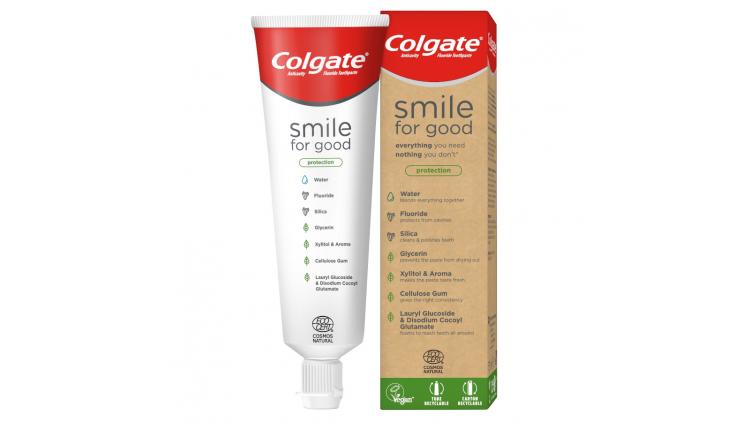
Toothpaste tubes have traditionally been impossible to recycle because they are made from a mixture of plastic and aluminium. Consumers get through 20bn packs of toothpaste every year with discarded tubes contributing to the plastic pollution crisis.
But Colgate’s new Smile for Good brand, which has also been certified by the Vegan Society, comes in a tube made from high density polyethylene (HDPE) which is the same plastic as milk containers.
Colgate said its engineers had figured out a way to turn the hard plastic, which is widely recyclable, into a “comfortably squeezable” tube.
The technology will be shared with rivals, Colgate-Palmolive said, as part of its commitment to reduce usage of what is one of the most widely used forms of plastic packaging that cannot be recycled.
However, the green toothpaste, which is on sale in Waitrose and Boots, comes at a high price. At £5 for 75ml, Smile for Goods costs more than six times as much as a regular tube of Colgate.
Colgate-Palmolive’s chief executive, Noel Wallace, said: “Colgate wants to make tubes a part of the circular economy by keeping this plastic productive and eliminating waste. If we can standardise recyclable tubes among all companies, we all win. We can align on these common standards for tubes and still compete with what’s inside them.”
Colgate has also taken the unusual step of listing the toothpaste’s ingredients on the tube alongside a simple explanation of their function. Consumers trying to buy greener products were confused by the role of the various ingredients, the company said. While the role of fluoride is probably well understood, the tube explains that silica cleans and polishes while glycerin prevents the paste from drying out.
As concern grows about the impact of single-use plastic on the environment, manufacturers and retailers have begun to tackle their substantial footprints. Colgate-Palmolive, which also owns the Palmolive and Sanex brands, has said the packaging on all its products will be 100% recyclable by 2025.
Last year Unilever said it would halve its use of virgin plastic by creating greener versions of its household products, a shift that could make shampoo refill stations, cardboard deodorant sticks and toothpaste tablets the norm in supermarkets.







